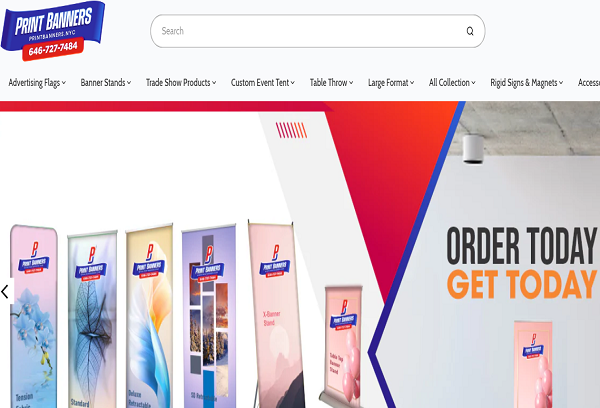What is a Reciprocal Link in SEO and How Does it Impact Rankings?
- September 2, 2025
- SEO

In the world of SEO, links are more than just connections between websites—they are signals of trust and authority. Search engines like Google use them as a way to determine the value and credibility of a site. When one website links to another, it acts as a recommendation that says, “this content is worth checking out.”
Among the different types of links, reciprocal linking remains one of the most talked-about strategies. A reciprocal link happens when two websites agree to link to each other. For example, Website A links to Website B, and Website B links back to Website A. This kind of exchange is designed to share traffic, build visibility, and foster credibility between both parties.
Research shows that nearly 73% of websites engage in some form of reciprocal linking. While this proves how common the practice is, it doesn’t mean every exchange is beneficial. When used naturally and in moderation, reciprocal links can strengthen SEO. However, if they are misused or overdone, they can harm rankings instead of improving them.
Why Do Websites Use Reciprocal Links?
Websites often rely on reciprocal linking for several reasons. It allows them to share traffic, build professional or business relationships, support content with additional resources, and—if done correctly—give a small SEO boost. Bloggers, businesses, and niche partners frequently use this method to complement each other’s content and audiences.
The Benefits of Reciprocal Linking
When applied properly, reciprocal links can:
- Increase visibility for both sites
- Introduce each website to new audiences
- Strengthen professional networks
- Provide readers with additional, relevant resources
These advantages make reciprocal linking appealing, especially for businesses and creators who want to expand their reach.
The Risks of Overusing Reciprocal Links
Despite its benefits, reciprocal linking comes with risks if it’s misused. Too many link exchanges can appear manipulative to search engines. Google may flag irrelevant or excessive reciprocal links as spammy, which can lead to lower rankings. This is why relevance and moderation are crucial—linking should always prioritize value for the user.
How Search Engines Interpret Reciprocal Links
Search engines understand that reciprocal links can happen naturally.
For instance, if two experts in the same field reference each other’s work, it’s seen as an authentic exchange. However, large numbers of irrelevant or forced link swaps raise red flags. Authenticity and context are what keep reciprocal links safe in the eyes of Google.
Best Practices for Reciprocal Linking
For businesses or websites that want to use reciprocal links safely, the focus should always be on:
- Linking only to relevant and high-quality sites
- Prioritizing quality over quantity
- Avoiding link farms or spammy exchanges
- Combining reciprocal links with other link-building strategies such as guest posting, content marketing, and PR campaigns
By following these practices, reciprocal links can be a healthy part of a broader SEO strategy rather than a risky shortcut.
Reciprocal Links vs. Natural Links
While reciprocal links can be beneficial, natural one-way backlinks carry more SEO weight. These occur when other websites link to your content without expecting a link in return. Search engines value them highly because they are harder to manipulate. That’s why the safest strategy is to balance reciprocal links with naturally earned backlinks.
Using Reciprocal Links the Right Way
Reciprocal linking is most effective when it happens organically—such as between business partners, bloggers, or websites with related audiences. It should never be forced or overused just to manipulate search rankings. A few relevant, meaningful exchanges can help, but relying on them too heavily may do more harm than good.
How SEO Discovery Helps Businesses with Safe Link-Building
Understanding reciprocal links is one thing—knowing how to implement them without penalties is another. At SEO Discovery, the approach to link-building goes beyond simple exchanges. With over 22 years of experience, the team builds comprehensive SEO strategies that include:
- High-quality backlinks from authoritative sites
- Thoughtful, safe use of reciprocal links where relevant
- Content marketing that naturally attracts links
- Technical SEO improvements for stronger site performance
- White-hat practices aligned with Google’s guidelines
This balanced approach ensures that link-building not only improves visibility and rankings but also supports long-term growth without risking penalties.
If your business is looking to strengthen its SEO strategy, working with experts like SEO Discovery can help you gain safe, effective, and sustainable results.
At Earn SEO, we specialize in helping businesses navigate strategies like reciprocal linking the right way. As trusted SEO consultants in New York, our team focuses on building safe, effective, and long-term SEO campaigns that improve rankings and drive real results. Whether you need expert link-building, technical SEO, or a complete digital growth strategy, we’re here to help your business grow. Partner with us today and take your online visibility to the next level!
Earn SEO was established in 2011 by Devendra Mishra, a highly educated professional with varied training and experience. Mr. Mishra is responsible for business development, attracting new Earn SEO partners, and interacting with clients, the media and press, and acting as Brand Ambassador.

Devendra Mishra
Founder




































